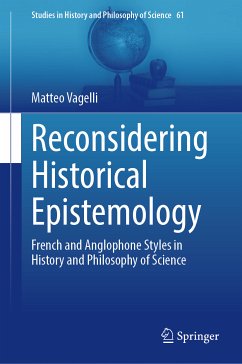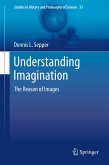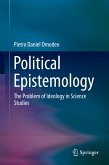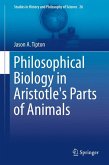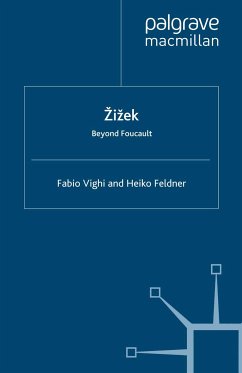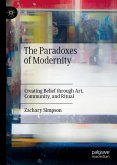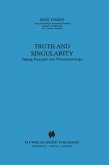"Uneasily, the history and philosophy of science have bolstered and undermined each other for all too long. Would history offer nothing but potted episodes to confirm or contradict transhistorical claims about science? Would philosophy dismantle uncritical historicist accounts of scientific discoveries? Historical epistemology offers a more integrated path, at once a history of the present and a philosophy of the past. Matteo Vagelli draws together the insights of the Francophone, Anglophone and Germanophone traditions to give us a sparkling, lucid account of seeing our standards of scientific understanding as developing across time, always asking: how did we come to our standards of demonstration and argument?" - Peter Galison, Harvard University, USA
"In this highly sophisticated synthetic work, Matteo Vagelli provides a very clear and informative history of epistemology and the philosophy and history of science. He makes instructive and subtle distinctions that are often overlooked, and makes full and productive use of Ian Hacking's notion of "styles", discerning different ways of doing science, philosophy and history. It is a thoughtful and erudite book that will help a diverse array of scholars become more reflective about their own practices, and more tolerant and curious about other styles of inquiry." (Hasok Chang, Hans Rausing Professor of History and Philosophy of Science, University of Cambridge, UK)
"Vagelli's book provides a both unique and uniquely important window into historical epistemology and its relation to contemporary philosophy of science. Unique because nowhere else can one find a single work that treats the range of topics that he covers. Uniquely important because Vagelli's clear, concise, and comprehensive survey details key interrelationships among a range of American, British, and European views currently in play regarding historical epistemology and philosophy of science as well as the institutional and intellectual vectors driving their associated epistemological positions" - Paul Roth, UC Santa Cruz, USA
Dieser Download kann aus rechtlichen Gründen nur mit Rechnungsadresse in A, B, BG, CY, CZ, D, DK, EW, E, FIN, F, GR, HR, H, IRL, I, LT, L, LR, M, NL, PL, P, R, S, SLO, SK ausgeliefert werden.
Vagelli s reconstruction of the history of historical epistemology reads as richly detailed and thoroughly researched. Historians and philosophers of the life sciences will certainly glean much of interest from Vagelli s philosophical treatment of historical epistemology, particularly the contrasts drawn between the histories of mathematical physics and the life sciences. (Matthew Perkins-McVey, History and Philosophy of the Life Sciences, Vol. 46 (4), 2024)

